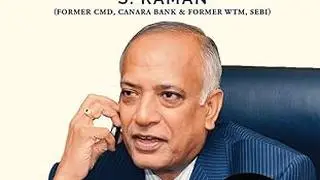Mani Shankar Aiyar is known to everyone. Most people now think of him as the man who, in 2014, made that chaiwallah remark about Narendra Modi.
But there are many others who know him as a diplomat or a politician or a factotum of the Rajiv Gandhi brigade.
A few also know him as a genuinely secular liberal who gets very angry with the RSS and BJP. And, a minuscule number know him as the elder brother of Swaminathan Aiyar, the outstanding and outspoken journalist.
Aiyar also speaks his mind, but he has been careful in this book not to tread on any toes.
Karachi posting
It’s interesting to read the full account of how he was almost unable to join the IFS because the IB had labelled him a communist. This was just after China had walloped India in 1962. Eventually good sense prevailed and he was allowed to join. But it took some very high level intervention to get the IB overruled.
The highlight of his career in the foreign service was his four-year Karachi posting. He has many stories to tell. You can almost hear him narrating them. And there is no pontificating. In fact, it’s those stories that make this book worth reading — despite its ridiculously high price.
In a sense, since his family was from Lahore, it was like going back home when he and his Sikh wife arrived in Pakistan. A year earlier, General Zia ul Haq had staged a coup against his boss, Zulfikar Ali Bhutto — who had once called him a monkey. In 1979 Zia hanged Bhutto. Aiyar says he thought there would be a mass uprising. But nothing happened.
In a little aside he says India’s army chief was passing through Karachi that day. He went to the airport to receive him and fully expected a Pakistani general too to be there. Instead, only a brigadier was present.
Aiyar was appalled at this bad behaviour by the Pakistanis but says that when he made enquiries later, it turned out that all the generals were busy hanging Bhutto. Surprisingly, Aiyar shows no sympathy for Bhutto and tells a couple of stories about his brutal ways, that included getting his opponents sodomised.
In 2008 he went to Lahore as a minister and asked if he could get his birth certificate. It was found and given to him the next day — unlike in India when it took a few months to retrieve General Pervez Musharraf’s birth certificate in Delhi.
Rajiv Gandhi connect
Aiyar came into proper contact with Rajiv Gandhi in 1985. Before that it was all a tangential connection via Doon School and Cambridge University. Aiyar has taken great pains to emphasise this. There wasn’t any need.
He says Rajiv Gandhi visited his home just once when his mother passed away. He, however, was never invited into the Rajiv home. He thinks it was because Sonia Gandhi “disapproved of my intruding on family privacy”. That sardonic line is the only hint we get of what he perhaps actually thinks of her.
As mentioned earlier, this book is bursting at the seams with anecdotes. It should be read for that reason alone. Aiyar, in telling these anecdotes, doesn’t spare himself.
In one he says he was given a tiny room in the Congress office next to the ladies toilet. The smell, he writes, “was unbearable”. It didn’t have an AC, either. Rajiv Gandhi asked for one to be installed.
But it’s not clear whether anything was done about the “unbearable smell”.
Title: Memoirs of a Maverick: The First Fifty Years
Author: Mani Shankar Aiyar
Publisher: Juggernaut
Price: ₹900








Comments
Comments have to be in English, and in full sentences. They cannot be abusive or personal. Please abide by our community guidelines for posting your comments.
We have migrated to a new commenting platform. If you are already a registered user of TheHindu Businessline and logged in, you may continue to engage with our articles. If you do not have an account please register and login to post comments. Users can access their older comments by logging into their accounts on Vuukle.